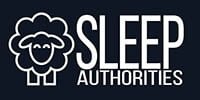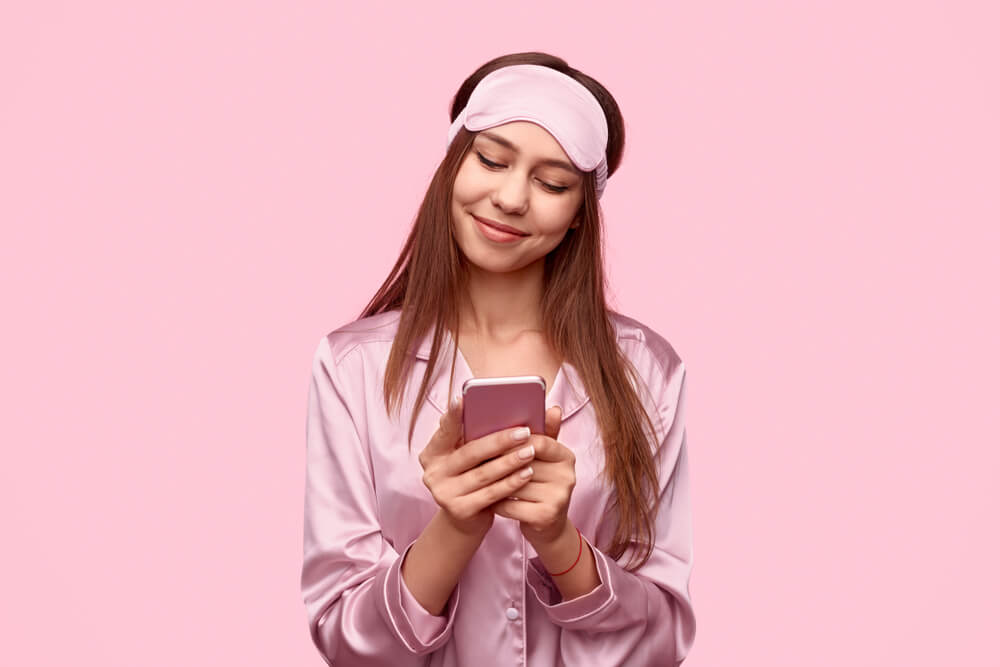You’re browsing the app store. You come across something that claims to track your sleeping habits. Based on the data it records, this app can give you personalized reports on your sleep quality. It can not only tell you how long you slept, but also how long you spent at each stage in the sleep cycle. It can even give you recommendations on how to get better sleep! This might all seem too good to be true. Can a phone really know that much about how you sleep? Or are these apps just flashy gimmicks that don’t do a lick of good?
How Do We Measure Sleep?
Before we can answer these questions, we first need to define a few key terms. Think of any movie or TV show you’ve watched that involves a professional sleep study. Remember how the characters were hooked up to various screens and wires to collect data? That method is known as polysomnography (PSG), which experts consider the gold standard of sleep studies.
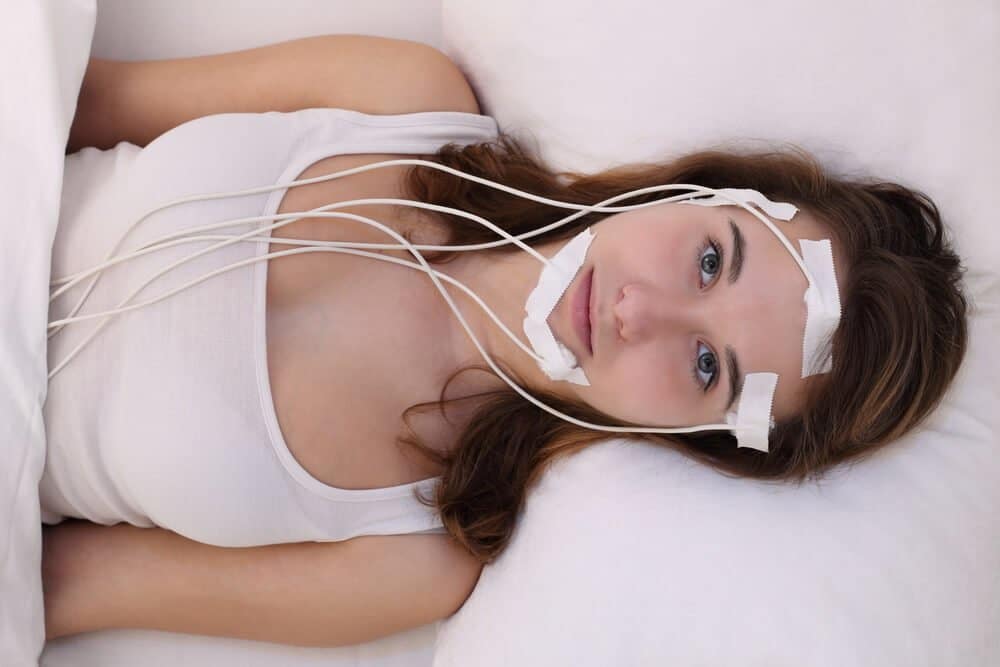
The biggest benefits of PSG? It can accurately measure not just the total time someone spent asleep, but also the various stages of sleep. In other words, PSG can see how long you spent in lighter or deeper sleep. Unfortunately, however, these tests can only occur in professional settings, making them quite expensive.
By contrast, actigraphy is a more cost-effective alternative to tracking sleep habits outside of a clinical setting. This testing method involves wearing a specialized device on the wrist for a period of time to record data. While actigraphy offers plenty of benefits to clinicians and patients alike, this method cannot completely replace the accuracy of PSG.
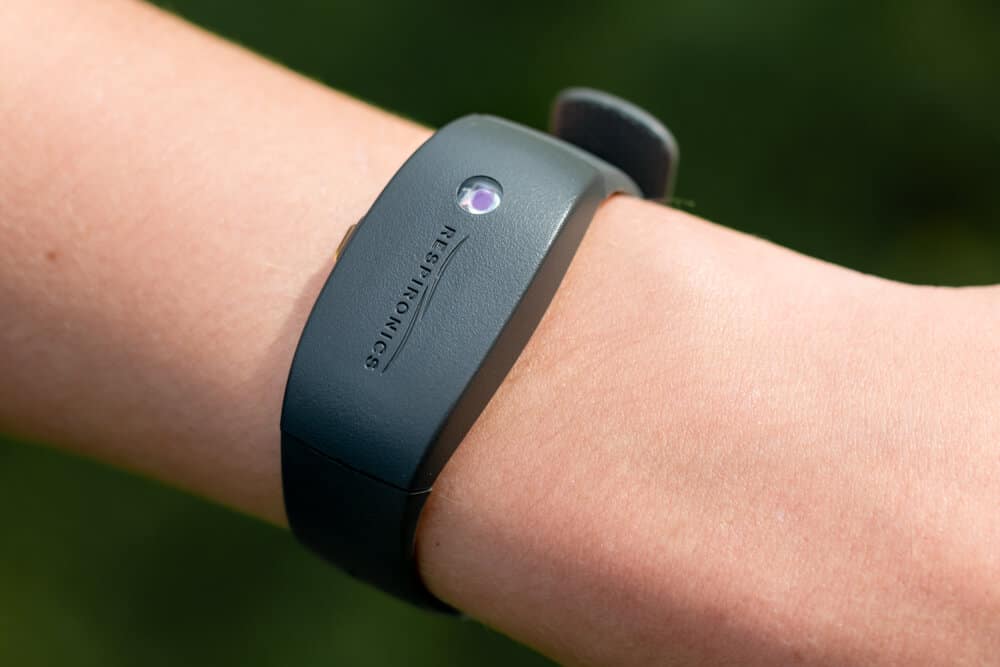
Now, some smartphone sleep-management apps claim to be able to accomplish some of the same tasks as these methods, like tracking time spent asleep and differentiating sleep stages. The real kicker? These apps claim to accurately record data without touching the body at all.
These claims sound a lot more like science fiction than science fact.
Are they?
How Do Sleep-tracking Apps Work?
How can smartphones allegedly track something as delicate as sleep cycles without even touching the body? Through their built-in accelerometers, of course. These sensors basically give phones information on movement. By tracking motion and orientation, smartphone accelerometers coordinate with sleep-management apps to make note of when you move (or don’t) during the night.
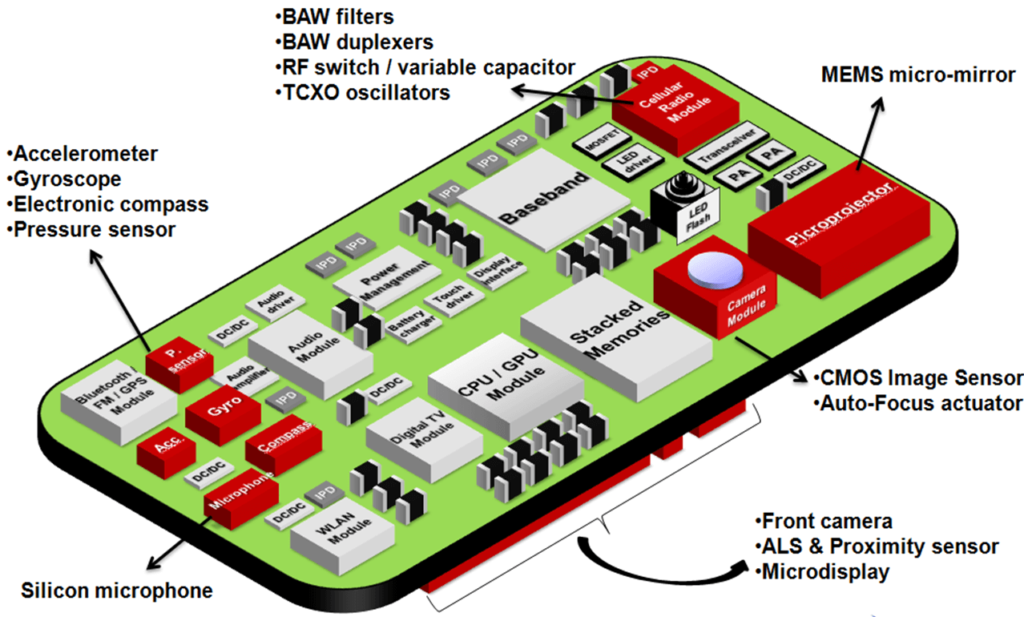
Now, different apps’ algorithms will vary a little. What they have in common, though, is that they tend to correlate limb movement with different stages of sleep. If the app records audio, it may factor potential snoring into this analysis.
Do Sleep Apps Really Work?
Do a quick search through an app store of your choosing, and you’ll notice there’s no shortage of apps dedicated to helping you manage your sleep health/sleep hygiene. With so many options, it’s easy to become overwhelmed. Let’s keep things simple and just look at two of the most popular: Sleep Time and Sleep Cycle. (Besides being popular, they’re also two of the few sleep-managing apps that have any studies that compare their accuracy to that of PSG.)
You can see a side-by-side comparison of the two apps’ major features below.
| Sleep Cycle | Sleep Time | |
| Alarm Function | Yes | Yes |
| Records Sleep Duration | Yes | Yes |
| Sleep Analysis | Yes | Yes |
| Journal-like Function | Yes | Yes |
| Records Audio | Yes | No |
Both Sleep Time and Sleep Cycle operate similarly. Namely, they both utilize phones’ accelerometers to track movement (and, with Sleep Cycle, audio) while you sleep. Based on what these apps record, they’ll give you a report in the morning. This report claims to offer customized insight into your sleep quality.
But what does the research say about the accuracy of Sleep Time and Sleep Cycle?
Not Quite There Yet
Don’t expect to see these apps relabeled as a new gold standard for sleep testing any time soon.[1,2] One 2015 report compares the efficacy of Sleep Time to PSG. Its conclusion? This app is currently not reliable enough to replace PSG in clinical studies.[3] A 2017 report similarly concludes that Sleep Cycle isn’t as accurate as PSG and wouldn’t work well as a tool for clinicians.[4]
Why aren’t these apps as reliable as PSG? There’s a lot of speculation. Potential factors that could reduce these apps’ accuracy include a phone’s sensitivity settings and how you move when you rest (especially if you sleep poorly).
These potential factors, though, aren’t all that may reduce consistency in sleep-managing apps. There may also be issues with standardization across various operating systems. In other words, one app might work more effectively on an iPhone than on an Android.[5] However, without further studies to compare how an app works on different phone models, this is just speculation.
So, these apps can’t replace clinical tools. That doesn’t tell us too much, though. After all, developers aren’t promoting their apps as diagnostic devices that can replace your doctor. Does that mean that the worst thing these apps can be is inconsistent or unreliable?
Perhaps not.
“Health” Tech: The Good, the Bad, and the Ugly
Research suggests that these types of apps might actually do more harm than good for certain demographics.
Perfect Storm for Data Misuse?
One 2017 report speculates that those who could misuse these apps include perfectionists and those with high levels of anxiety. The potential for misuse may increase if they already suffer from a sleep-related issue like insomnia. These people might become so obsessed with the data these apps generate that their sleep quality actually decreases due to stress. Worst of all, this data might not even be accurate. . . and some people might still believe smartphone-generated results over that of lab-based PSG or actigraphy.[6]
Put the Phone Down
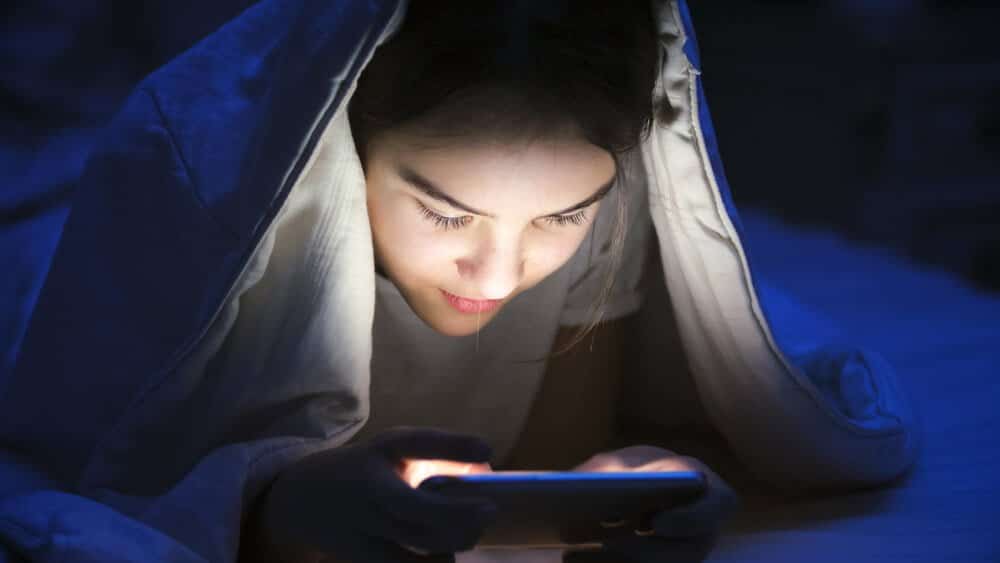
Of course, there’s also the problem posed by smartphone usage so late at night. There’s no shortage of studies suggesting that increased use of phones, particularly right before sleeping, may negatively impact sleep quality. Adolescents particularly appear to be at a high risk of sleep-related issues, like sleep loss, if they use their smartphones for extended periods of time, especially at night.[7] For these demographics, then, there may be more risks than benefits to using these types of apps, especially if utilized late at night.
There’s no shortage of irony in this predicament. After all, there’s research aplenty that correlates increased phone usage to poor sleep. With this in mind, how could using your phone more—especially at night—possibly be the solution?
Make Your Phone Work for You
If some people are more likely to experience negative side effects from sleep-management apps, do they really serve any beneficial purpose at all? You’ll have to be cautious, but—depending on how you use them—you might be able to squeeze some benefits from them.
Prioritize Sleep
Firstly, the use of these apps alone means that someone is placing sleep higher on their priority list. For those who consistently neglect sleep, having an app to gently remind them to focus on sleep may prove to be beneficial, so long as they don’t obsess over it.
Start Doing a Little Self-discovery
Secondly, people who sleep alone might also learn something new about themselves with a sleeping app that records audio: if they snore.[8] To be clear, this information cannot diagnose any specific condition. However, this revelation can help someone be a little more aware of how their body works when they’re unconscious.[9]
Write that Down
Thirdly, options that allow note-taking could also prove beneficial. Sometimes, a doctor may ask a patient to keep a sleep journal to provide a more holistic picture of their health. Research shows that some people were much more consistent with keeping a sleep journal on their phones than on websites or with a physical notebook.[10] Even if someone doesn’t always record things accurately, there’s still something for a patient to talk to their doctor about.[11]
In other words, these apps aren’t diagnostic tools. They may, however, still help a patient be more conscientious of their sleeping patterns. This, in turn, may give them more to discuss with their doctor.
Our Verdict?
These apps, then, may be beneficial if they motivate you to take better care of sleep, an often-neglected aspect of our daily lives. So, invest in them if you want—just don’t expect your sleep quality to magically improve, to discover you have an underlying disease, or for them to be as accurate as lab-based PSG or even actigraphy.
How to Get Better Sleep
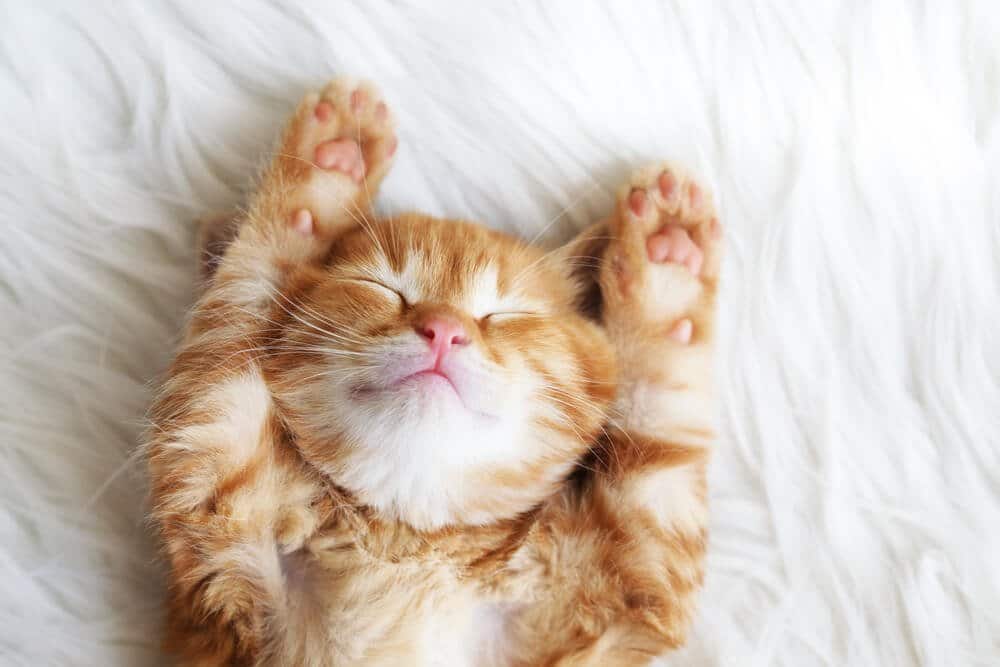
If you’re truly looking for the best way to get better sleep? First and foremost, you should address any specific concerns with your doctor. Most people, though, find that they can improve their sleep quality just by taking better care of themselves and practicing basic sleep hygiene.[12] Part of that involves listening to your body and understanding your limits. After all, you know yourself better than an app does.
Terms
- Polysomnography (PSG): The gold standard method of tracking sleep habits, which may help physicians identify health problems in patients.
- Actigraphy: A different method of tracking sleep habits that involves a patient wearing a device on the wrist to record data.
References
[1][8][10]Ong, A. A., & Gillespie, M. B. (2016). Overview of smartphone applications for sleep analysis. World journal of otorhinolaryngology – head and neck surgery, 2(1), 45–49. doi:10.1016/j.wjorl.2016.02.001
[2]Choi, Y. K., Demiris, G., Lin, S. Y., Iribarren, S. J., Landis, C. A., Thompson, H. J., … Ward, T. M. (2018). Smartphone Applications to Support Sleep Self-Management: Review and Evaluation. Journal of clinical sleep medicine : JCSM : official publication of the American Academy of Sleep Medicine, 14(10), 1783–1790. doi:10.5664/jcsm.7396
[3][5]Bhat, S., Ferraris, A., Gupta, D., Mozafarian, M., DeBari, V. A., Gushway-Henry, N., … Chokroverty, S. (2015). Is There a Clinical Role For Smartphone Sleep Apps? Comparison of Sleep Cycle Detection by a Smartphone Application to Polysomnography. Journal of clinical sleep medicine : JCSM : official publication of the American Academy of Sleep Medicine, 11(7), 709–715. doi:10.5664/jcsm.4840
[4]Patel, P., Kim, J.Y. & Brooks, L.J. (2017). Accuracy of a smartphone application in estimating sleep in children. Sleep and Breathing, 21(2): 505-511. doi: 10.1007/s11325-016-1425-x
[6]Baron, K.G., Abbott, S., Jao, N., Manalo, N., & Mullen, R. (2017) Orthosomnia: are some patients taking the quantified self too far? Journal clinical sleep medicine,13(2):351–354. http://dx.doi.org/10.5664/jcsm.6472
[7]Touitou, Y., Touitou, D., Reinberg, A. (2017). Disruption of adolescents’ circadian clock: The vicious circle of media use, exposure to light at night, sleep loss and risk behavior. Journal of Physiology – Paris.
[9]To learn more about how self-management apps may provide greater insight into trends regarding reflection of the self and society, read Williams, S. J., Coveney, C. & Meadows, R. (2015). ‘M‐apping’ sleep? Trends and transformations in the digital age. Sociology of Health & Illness, 37: 1039-1054. doi:10.1111/1467-9566.12283
[11]Khosla S, Deak MC, Gault D, Goldstein CA, Hwang D, Kwon Y, O’Hearn D, Schutte-Rodin S, Yurcheshen M, Rosen IM, Kirsch DB, Chervin RD, Carden KA, Ramar K, Aurora RN, Kristo DA, Malhotra RK, Martin JL, Olson EJ, Rosen CL, Rowley JA. (2018). Consumer sleep technology: an American Academy of Sleep Medicine position statement. Journal of clinical sleep medicine 14(5):877-880. http://dx.doi.org/10.5664/jcsm.7128
[12]Healthy Sleep Habits (2017). Retrieved from http://sleepeducation.org/essentials-in-sleep/healthy-sleep-habits
